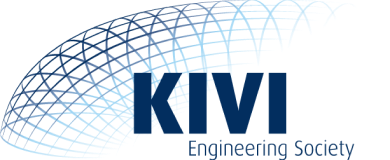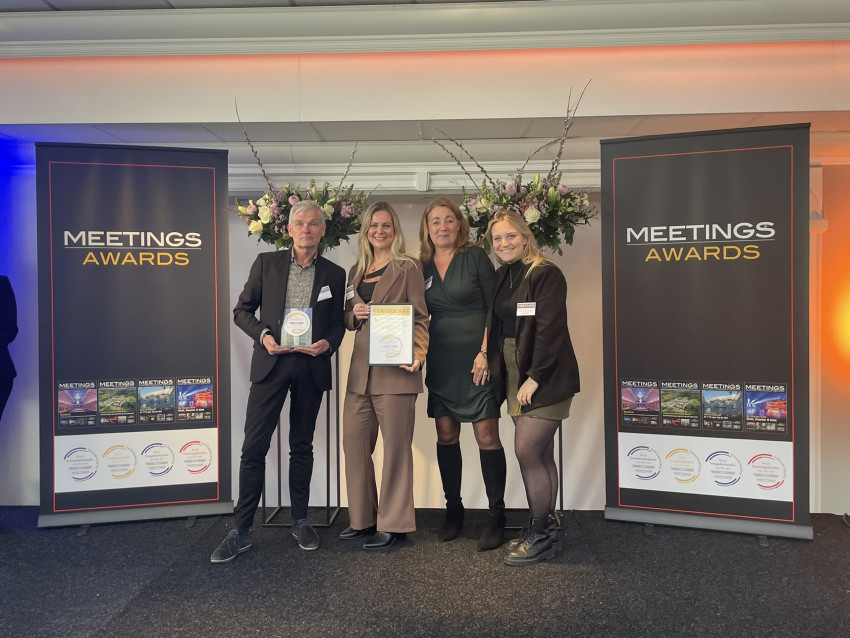
To the instrumental version of “Brabant” by Guus Meeuwis, the procession entered the Blauwe Zaal yesterday for the opening of the new academic year of the TU/e in Eindhoven. The main topic of debate among the various university partners present was whether the energy transition is moving too fast as the President of the Executive Board Robert-Jan Smits claimed in De Telegraaf on August 25.
Politician Diederik Samsom immediately caused a stir as he opened his speech: “I expected to do this on autopilot, but when I read the interview with Smits in De Telegraaf, I had to change my story. According to this university’s Board President, the energy transition is moving too fast and he predicted that I would disagree with him. And I do. As it is, we have no choice between a slow or a fast process,” he continues. “We can't afford that luxury. We simply have to move forward quickly.”
Marieke Blom, economist at ING backs up Samson's opinion with a financial argument: “Both the costs of fighting climate change and the costs of doing nothing have been calculated. Doing nothing is more expensive. So there’s even a business case for taking action against climate change. But we can’t leave it to the market, the government has to step in and help.” The latter was echoed by several speakers: all parties must get involved, that is the only way we can succeed.

The first panel with Peter Wennink, Marieke Blom and Diederik Samsom.
Peter Wennink, CEO of ASML expressed his concern that we are falling behind in terms of our earning capacity, referring to East Asia making big strides in battery technology and electric cars, among other things. “What are we going to buy in the future? A car from China and stuff from Japan? Yes. Is that a problem? Yes. We must maintain our place in the economy. Politics is too divided on this issue and there’s no long-term vision.” This was something he also discussed on Nieuwsuur later that evening. Wennink: “It’s important for the industry to be in contact with academia and government. I know people are concerned about academic integrity. But there’s no need. My company, ASML, works in close cooperation with TU/e and I am certain that academic integrity is safeguarded.”

The second panel with Hellen van der Plas, Lars Reger, Robert-Jan Smits and Lisanne Havinga.
This first panel was followed by another that included representatives from Signify, NXP, EIRES and TU/e. Lars Regers of NXP spoke, among other things, of a “disease going around in Europe, which is that we have brilliant ideas here but we let countries outside the EU run away with them. Realize those ideas here and you'll make money that can pay for the roof over your head.” This is in line with Wennink’s narrative. Smits chimes in: “I just want politicians to be honest about the consequences of the current pace of the transition. I would like to see the transition happen as quickly as responsibly possible, but I don’t want to have to drive a Chinese car.”
Lisanne Havinga of EIRES thinks that in her field - built environment - the transition is not moving very fast at all. “We’ve barely started the transition. There are some pilots running in a couple of neighborhoods in the Netherlands. Some houses are gas-free now. But if you look at the big picture, there is still a lot of work to do. In order to get there, we will also have to help people invest in it. It certainly pays off in the long run, but it takes a lot of money at the beginning and not everybody has that.”
After the debates, it is time for the presentation of a new piece of furniture for the university: “the chair of the future”. A “green” chair made out of recycled materials to give sustainability a permanent place at the decision-making table. Koen de Nooij and Michael Heijne presented the chair on behalf of the GO Green Office. Robert-Jan Smits accepted it, saying: “It’s nice to see this chair. I like the symbolism behind it. It will get a tour of the university and will also be taken to the deans.”

The Chair of the Future is being presented to the President of the Executive Board Robert-Jan Smits.
Rector Silvia Lenaerts then started the official speech opening the academic year. “The world has changed rapidly and the parties and issues we are dealing with are more complex than ever.” Afterwards, she listed quite a few values she considers important for TU/e: “autonomy, freedom, cooperation, thoughtfulness, collegiality, reflection, diversity, inclusiveness, openness and transparency. Let’s make it happen!” after which she pressed the red button, setting off grand fireworks in the Blauwe Zaal.
author: Bridget Alcione Spoor
photo's: Bart van Overbeeke
source: TU/e Cursor, 5-9-2023. Link to original.


